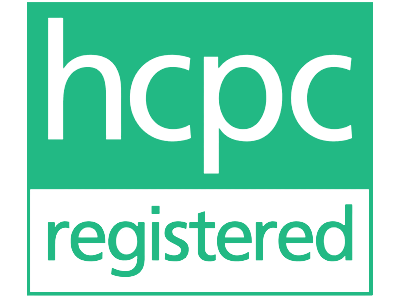About The Practice
Dr. Fiona Seth-Smith
I am a Consultant Clinical Psychologist with over 30 years of experience in the NHS and private practice. In the NHS I led psychology and psychotherapy teams and was previously an Art Psychotherapist. I work collaboratively with my clients to provide psychological therapy which is tailored to your particular needs.
I find it helpful to understand your difficulties through multiple lenses, including cultural and family experiences. My approach is informed by attachment and developmental theories and I recognise the central importance of family and social relationships to personal well-being.
I am accredited in individual therapies such as Cognitive Behavioural Therapy (CBT) and Eye Movement Desensitisation and Reprocessing for Trauma (EMDR). I am also a qualified psychoanalytic parent infant psychotherapist and provide parent baby (PIPP), and couple inverventions, if on assessment, these emerge as being the the most helpful approaches for you and your family.
Alongside my speciality in perinatal mental health, I also provide therapy for people across the whole spectrum of family experience including teenagers, young adults and older adults. I have worked in multiple settings including psychotherapy clinics, child and family services (CAMHS), community mental health teams, early intervention in psychosis teams and an in a highly regarded inpatient mother and baby unit.
Fiona’s Qualifications & Accreditations
DClinPsych. – Doctorate in Clinical Psychology, University College London (2006)
CPsychol. – Chartered Clinical Psychologist and Associate Fellow, British Psychological Society AFBPS No: 091263
Registered Practitioner Psychologist – Health & Social Care Professions Council. HSPC No: 091263
British Association for Behavioural and Cognitive Psychotherapies (BABCP) – Accredited CBT Psychotherapist
Psychoanalytic Parent Infant Psychotherapist - Anna Freud Centre London (AFC).
Postgraduate Diploma in Systemic Practice with Families and Couples – Institute of Family Therapy
Postgraduate Diploma in Art Therapy – University of Hertfordshire.
Education
BSc in. Psychology – Open University (First Class Hons., 1998).
BA in Fine Art – Bath Academy of Art (Upper Second Hons., 1983).
Selected Publications
Seth-Smith, F., Levi, N., Pratt, R., Fonagy, P. & Jaffey, D. (2010). Do nurture groups improve the social, emotional and behavioural functioning of at risk children? Educational and Child Psychology, 27(1), 21- 34.
Healy, S., Lewin, J.,Vaillancourt, K. & Seth-Smith, F. (2015). Affect recognition and quality of mother-infant interaction: understanding parenting difficulties in mothers with schizophrenia. Archives of Women’s Mental Health.
Pearlman, S., Seth-Smith, F., Treneman, M., & Gorney, C. (2013). Seeing is Believing, Context.
Four Views of the Image. Art, Psychotherapy and Psychosis. Eds. Killick, K. & Schaverien, J., Routledge, London, 1997.
Specialist in Perinatal Mental Health
Perinatal mental health is a relatively new term which covers the risks and stresses to women’s mental health (and men’s) during pregnancy and through the first two years of a baby’s life. These include: difficulties conceiving, prenatal and postnatal mental illness such as depression, anxiety, Bipolar Disorder and Post Partum Psychosis. Perinatal psychologists also work with women who have experienced traumatic births. The term ‘perinatal mental health’ broadly covers the whole spectrum of family experience around parenthood, incorporating the biological, emotional and social adjustments to being a parent, all of which are momentous.
Adjustment to Parenthood
Having a baby is, of course, also a time of great joy and potential, which is why I am so motivated to provide you with the best support at an early stage, to help you feel present and well, and to help your baby thrive. Making changes in how you address the challenges and demands of having a baby can yield profound and long-lasting benefits to you and your family.
Fertility Experience and Baby Loss
Some couples go through processes of fertility treatment which take a toll on wellbeing and relationships. Some tragically experience the loss of a baby to miscarriage or still birth.
Fertility Experience
I recognise the unique and often invisible emotional pain and the disruption to your life and relationships which infertility and undergoing fertility treatment can represent. I am well placed to support you with whatever life decisions and/or perinatal mental health difficulties you may be experiencing.
Baby Loss
The pain of losing a baby to miscarriage or stillbirth is also often invisible and yet devastating. In addition to your experiences of loss and bereavement you may struggle with other feelings including anger and guilt.
Sometimes it can be helpful to have a safe and confidential space to speak and think about these feelings. I am very experienced in supporting women and couples going through these difficulties.
What is Parent Infant Psychotherapy?
Parent Infant Psychotherapy is a Psychodynamic Therapy in which you and your baby meet with Fiona together. The aim of the therapy is to relieve emotional disturbances within you and to support your baby’s emotional development, by working together with you on your evolving relationship with one another. Many things may impact on your ways of interacting with your baby, for example post natal depression, finding your baby hard to soothe or fearing that your baby does not like you. Every mother and every baby are different. Parent Infant Psychotherapy can make a profound difference to you and your baby by offering you both support in feeling connected to one another and helping you to understand your baby as an emerging person who is able to become securely attached to you. Parent Infant Psychotherapy can be brief or can take place over a longer period of time as your baby grows and develops.
What is EMDR for Trauma?
EMDR stands for Eye Movement Desensitisation and Reprocessing. EMDR is a therapy used to help people recover from distressing events and the problems they cause - such as flashbacks, upsetting thoughts or images, depression and anxiety.
When we are overwhelmed and experience acute fear our brains can sometimes not fully process what has happened to us.
This may leave us vulnerable to feelings of hypervigilance (always watching out for things to go wrong), or social withdrawal. It may cause relationship problems and affect other aspects of our well-being. EMDR enables us to process these traumatic or difficult experiences so that they can no longer intrude into our everyday lives.
EMDR was first developed and recognised as a treatment for post-traumatic stress disorder, but I have found it to be helpful with a range of difficulties, including medical trauma and adverse childhood experiences.
In EMDR your therapist will use various forms of bilateral stimulation. You are asked to recall a part of the traumatic event while moving your eyes from side-to-side, or listening to a sound in each ear alternately, or being tapped on each hand alternately.
These side-to-side sensations seem to stimulate the part of the brain in which the trauma has become stuck so that it can reprocess the information into something that is more like an ordinary memory. This has the effect of reducing its intensity and its ability to disrupt your everyday life
The effect may be similar to what occurs naturally during REM (Rapid Eye Movement) sleep, when your eyes move rapidly from side to side as the brain processes the events of the day. For further information please see the EMDR UK website.
EMDR is recognised by the National Institute for Health and Care Excellence (NICE) as a treatment for post-traumatic stress disorder (PTSD), and by the World Health Organisation (WHO), which also recognises it as an effective treatment for children.
What is CBT?
Cognitive Behavioural Therapy differs from many other forms of psychotherapy in that, as well as attending to the contents of your thoughts, it focusses on the patterns and types of your thinking, especially when are you are stressed or low.
Developed by a Psychoanalyst Aaron Beck, CBT moved away from looking at the past to focussing on unhelpful patterns of thinking and on unhelpful underlying beliefs. CBT is very goal focussed. The CBT practitioner understands some forms of thinking as types of behaviour. One of these, which many people have heard of, is ‘catastrophising’ meaning that you see everything that comes up as a potential disaster. This can leave you finding it hard to problem solve and sometimes with a belief that the world is not a safe place. Cognitive behavioural therapy also looks at your behaviours directly, in order to analyse if any of them are unhelpful to you. The CBT Psychotherapist helps you notice and name your emotions and how you respond to them. Crucially CBT understands all of these within your current context, recognising the role of sleeplessness, for example, on your emotions, thoughts and behaviours. When practicing CBT, I start with a thorough assessment of all these areas and from the assessment, which I conduct collaboratively with you, I develop and share with you a clear treatment plan. This includes, various forms of ‘homework’ meaning things to work on between sessions.
From CBT a number of highly effective ‘third wave’ therapies have developed which also help you to detach yourself from unhelpful thinking patterns and support you to become more of an observer of them rather than seeing your ‘thoughts as ‘facts’. These forms of therapy include Acceptance Commitment Therapy, Compassionate Mind Therapy and Mindfulness. We can discuss the potential usefulness of these ways of working for you, during your assessment.
What To Expect
The Therapy Process
“You can book an appointment for a 15 minute initial phone conversation here. This will give you an opportunity to gauge whether I might be someone you could trust and is a good fit for you. It will give you the chance to ask questions and to think more together about the changes you need and whether I am the right person to support you with this.”
“If after our initial discussion, you decide to meet me, we will arrange an initial assessment and formulation session during which you can talk through your difficulties in total confidence and I will ask you questions in order to guide you to identify your goals and what you would like to gain from therapy. It may be treatment and support for perinatal anxiety and depression, trauma therapy, maternal OCD or relationship difficulties, or a combination of all of these. Once we have a shared working formulation, we can plan the likely number of sessions and the method and frequency of therapy that is likely to work best.”
“If you decide to go ahead with your therapy, it usually takes place through a combination of Zoom, face-to-face appointments, and sometimes telephone calls. Therapy will work best when there is a commitment to regular appointments. Normally I will meet with you once a week, although it can be helpful for sessions to be held at different intervals. The therapy progress will be monitored using specialist measures and will usually be conducted in pre-agreed blocks of sessions.
Therapy sessions are generally 50 minutes long unless we agree otherwise. I normally recommend up to an hour and a half for your initial appointment. EMDR sessions are occasionally 1.5 hours, in accordance with the evidence base. Any need for longer sessions would be discussed with you prior to organising them.”
“As your therapy progresses, it is helpful to work towards a therapy ending in order to ensure you maintain its benefits. When helpful, specialist outcome measures are used to check on your well-being and progress. If an onward referral to another practitioner is appropriate (for example, if therapy has not led to the desired change and you wish to try another approach to your difficulties), I will facilitate and support you with this if you wish, as part of the process of ending your therapy.”
Client Testimonials
























